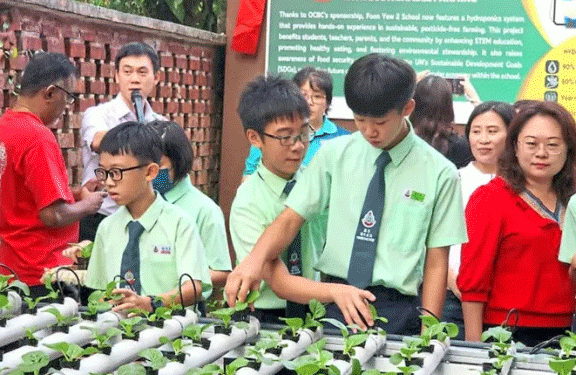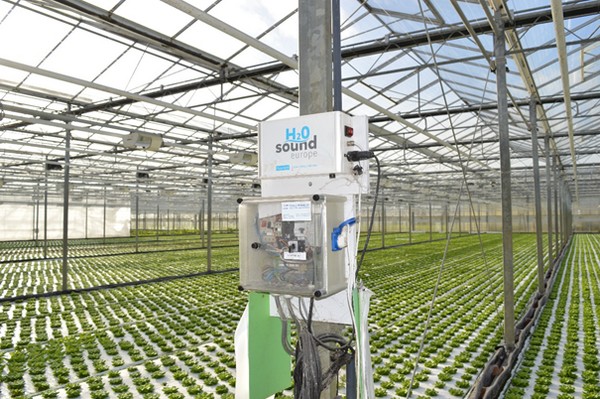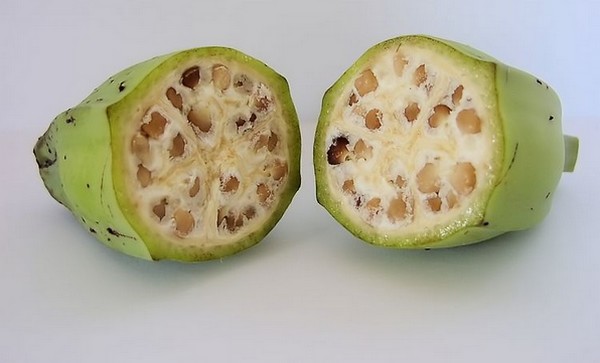In a world facing growing environmental challenges, the need for sustainable agricultural practices is more critical than ever. SJK(C) Foon Yew 2, a primary school, is taking proactive steps to ensure that the next generation is equipped with the knowledge and skills to contribute to eco-friendly farming. By setting up two hydroponic farming systems on its campus, the school is offering hands-on learning experiences that blend science, sustainability, and entrepreneurship for its students.
Hydroponic farming, a method that grows plants in a nutrient-rich water solution rather than soil, has gained significant attention in recent years due to its efficiency. This system uses up to 90% less water than traditional soil-based farming and allows for faster plant growth. By integrating hydroponics into their curriculum, SJK(C) Foon Yew 2 is not only teaching students about sustainable agriculture but also demonstrating the potential for this technology to address global food security challenges.
Headmaster Ramer Chong emphasized the importance of the project in promoting eco-friendly practices among pupils. “Introducing the hydroponic system will enhance our pupils’ understanding of sustainable agriculture and promote eco-friendly practices,” she explained. The initiative, which involves 1,275 pupils and 70 teachers, aims to provide students with a modern understanding of farming while encouraging entrepreneurial skills.
The school’s first foray into hydroponics has already shown promising results. Its initial batch of kangkung (water spinach) was harvested and presented to OCBC Bank, the sponsor of the hydroponic systems, in appreciation of their support. The second crop, Chinese cabbage, is expected to be harvested shortly, although it remains undecided whether this produce will be sold or shared with the local community.
This project is the latest addition to the school’s ongoing environmental initiatives, which have been in place since 2019. In addition to hydroponics, SJK(C) Foon Yew 2 runs monthly recycling drives, collecting approximately 7,000 kg of recyclables each time. The school also engages students in composting food waste from its canteen, turning waste into valuable organic fertilizer. These initiatives are led by a dedicated group of 60 pupils who make up the school’s Sustainability Club, actively participating in environmentally-friendly activities and advocating for green practices.
The introduction of hydroponics not only enriches the students’ learning environment but also strengthens the connection between academic institutions and the wider community. OCBC Bank’s Taman Molek branch, which contributed the hydroponic systems, has been instrumental in supporting the project. Lim Chu Luan, senior manager of the branch, remarked, “We usually engage with the people, assess their needs, and assist them in the spirit of the long-term good of society. We are pleased to help the school and hope the pupils and teachers will have a positive learning environment with the project.”
The hydroponic initiative at SJK(C) Foon Yew 2 represents a growing trend where schools across the globe are incorporating sustainable farming technologies into their educational programs. These efforts not only teach students essential life skills but also prepare them to address future agricultural challenges. With water scarcity and land shortages becoming more pressing in many parts of the world, hydroponics offers a scalable and resource-efficient solution for producing food.
The integration of this technology into schools like SJK(C) Foon Yew 2 showcases how educational institutions can be at the forefront of environmental change. By nurturing the interest of young students in sustainable farming practices, these initiatives have the potential to inspire future generations of farmers, agronomists, and agricultural engineers who will lead the way in creating a more sustainable agricultural landscape.
The hydroponic farming initiative at SJK(C) Foon Yew 2 is an inspiring example of how schools can play a crucial role in promoting sustainable agricultural practices. Through hands-on experience with modern farming technologies, students gain valuable insights into eco-friendly practices while learning skills that will serve them well in the future. This project not only enhances their understanding of sustainable farming but also encourages a sense of responsibility toward the environment, fostering the next generation of leaders in sustainable agriculture.












